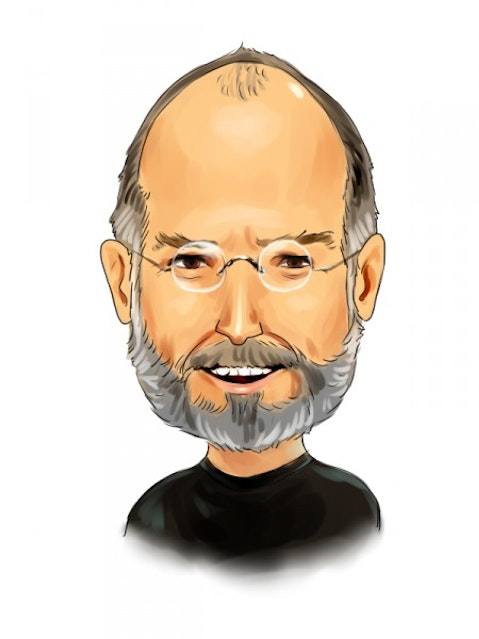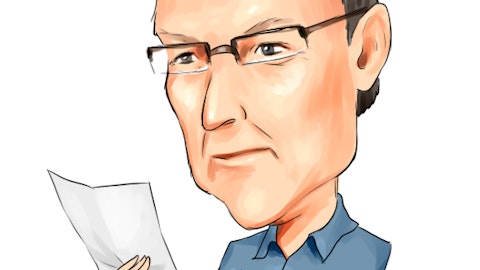Apple Inc (NASDAQ:AAPL) officially shut down its music-centric social network on September 30th, a date that will live in infamy for only the most dedicated fanboys. The network, called Ping, was originally announced in the fall of 2010 by an always-inspiring Steve Jobs. In his announcement speech, Jobs described Ping as “a social network for music, sort of like Facebook Inc (NASDAQ:FB) and Twitter meet iTunes.” In a format originally made popular by MySpace and perfected by, well, Mark Zuckerberg’s brainchild, Ping allowed law-abiding music lovers to follow their favorite artists and friends within the framework of iTunes itself.
From Apple Inc (NASDAQ:AAPL)’s standpoint, the primary purpose of Ping was to promote content discovery. Despite most in the blogosphere branding the network a “fail” and “a rare blemish” for the company, the original premise of Ping was quite masterful. Upon its launch, Ping was available to the majority of iTunes users, which numbered in the 160 million range at that point. While most think that Google Inc (NASDAQ:GOOG)‘s Google+ coined the term “circles” as groups that social media friends could be organized into, Apple Inc (NASDAQ:AAPL)’s platform actually introduced a similar concept with the release of Ping.
Within Ping’s circles, users could create a fully integrated music sharing environment, where they and their friends could perform a number of tasks including: (1) listen to friends’ playlists or song previews if the tracks weren’t purchased, (2) discover music others are downloading, (3) customized song and album charts based on popularity amongst friends, (4) track and order concert tickets, and of course (5) it was available on iPhone and iPod Touch.
At first glance, there doesn’t seem to be any striking flaws associated with Ping, until one considers it’s social media connectivity, or lack thereof. In the same way that Spotify is connected through Facebook Inc (NASDAQ:FB) (as discussed here), Jobs’s original plan was to integrate Ping with the world’s largest social network. While this seems like a no-brainer, a partnership between the two failed to materialize, as Apple Inc (NASDAQ:AAPL)’s late CEO simply cited that Facebook Inc (NASDAQ:FB) wouldn’t budge on “onerous terms that we [Apple] could not agree to.”
Though Apple Inc (NASDAQ:AAPL) did not regularly discuss Ping’s user data, it did report having 1 million subscribers within the first 48 hours of launch, and by the start of this year, over 200 million iTunes users had access to the platform. Determining what percentage of iTunes used actually employed Ping on a regular basis is impossible to determine, but the overall breadth of its network compared favorably to peers like Pandora Media Inc (NYSE:P) at 150 million users, Spotify at 20 million, and Last.fm at 40 million.
Understandably, Apple Inc (NASDAQ:AAPL) fanboys and trolls alike may wonder what reasoning the company would have to shut Ping down. Tim Cook may have shed some light on the decision last month when he shared that they “tried Ping and the customer voted, and we [Apple] said, this isn’t something I want to put a lot of energy into,” also stating that “some customers love it, but there’s not a huge number that do.” Most likely, Apple now understands that the majority of their iTunes users are already using Facebook Inc (NASDAQ:FB) and Twitter, and realized that these third-party networks can promote content discovery for the company, making Ping superfluous. With networks of 1 billion and 500 million respectively, Facebook Inc (NASDAQ:FB) and Twitter are best if they’re utilized by Apple instead of ignored.
While the iOS’s newest iteration includes deeper social media integration within iTunes and the App Store, there may be more significant developments on the horizon. As the Wall Street Journal originally reported last month, Apple Inc (NASDAQ:AAPL) is rumored to be working on a streaming music service a la Spotify and Pandora. Early speculation is that the service will be more similar to the latter, offering free streaming radio channels and paid advertisements. If the rumors are true, this may be the primary reasoning behind Apple’s decision to shut down Ping. As Cook said above, the company doesn’t want to put energy into a flawed platform, so it’s possible that they are focusing on another way to stimulate content discovery.
With the global music streaming industry expected to generate $1.1 billion in revenues this year – up 40% from last year – it is understandable why Apple Inc (NASDAQ:AAPL) is looking to make a play. Ditching social media for streaming music will likely prove easier to monetize, as Cook and Co. are busy working on contractual agreements with the industry’s biggest record labels.
It’s worth noting that since rumors of an Apple streaming music service surfaced in early September, shares of Pandora have fallen 16.2%. With three iTunes users for every two Pandora subscribers, it’s easy to see why investors have been skittish. Any industry that Apple Inc (NASDAQ:AAPL) typically moves into – with the exception of social media ironically – tends to shift around the competitive landscape. Throw in the fact that deep Facebook Inc (NASDAQ:FB) and Twitter integration are all but a certainty for such a service, and one can see the warning signs for Pandora quite clearly. Spotify, with it’s current linkup via Facebook Connect, looks to be in a better position to compete with Apple in this arena.
In 2011, Pandora reported $274 million in total revenues, and we estimate that Spotify can make close to $300 million by the end of this year in subscription revenue alone, though it’s hard to estimate exactly what an Apple Inc (NASDAQ:AAPL) streaming service would make without royalty specifics. The company’s iTunes platform is expected to make close to $8 billion by the end of 2012, though it does cost an approximated $1.3 billion a year to run. Perhaps a streaming service will do what Ping could not do for Apple – allow it to have its cake and eat it too. In short, by monetizing a content discovery service.
Disclosure: I have no positions in any of the companies mentioned in this article, and have no plans to do so within the next 72 hours.






